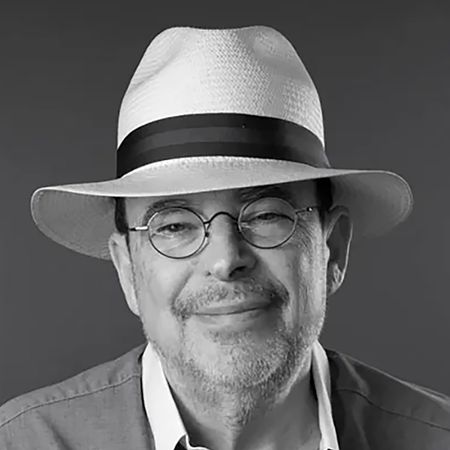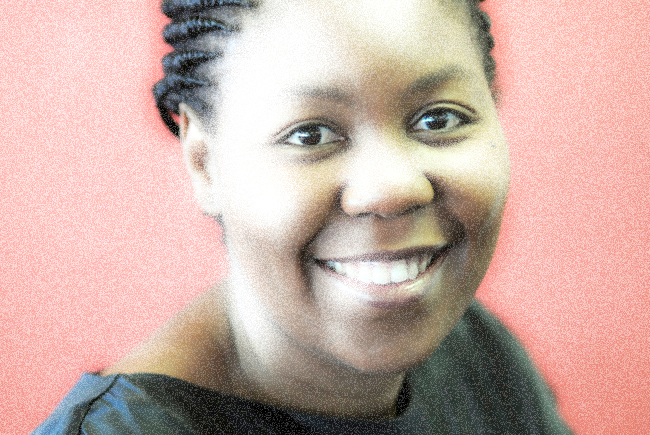Over the past several days, the Grahamstown National Arts Festival has been numbed by the cold and assailed by rain, even as ThinkFest and WordFest speakers – as well as some of the arts performers – have contended with erratic electric power supplies. On occasion, this has turned lecture halls into darkened caves or driven speakers to clamber up onto a chair to lead the milling crowd. The weather even closed the Village Green sales area for the first time ever as rising water hit the stalls, the electricity supply, and threatened to turn the area into a quagmire. Regardless, nearly everyone in Grahamstown – festival staff, speakers, performers, technical crew, visitors, pedlars – have all stayed pleasant and polite. Perhaps the cold has soothed the hot tempers – or simply stiffened smiles (or grimaces) in place.
If speakers like Clem Sunter have contended with lecture halls as subterranean caverns and if Zapiro ended up doing his eloquent advocacy for media freedom and free speech standing on that chair, Osisa executive director and Sonke Gender Justice and Health-e News chair Sisonke Msimang's presentation, “Leadership, Citizenship and South Africa's Political Trajectory” faced the ultimate test in producing a near zen-like moment. Grounded by her young child's illness, Msimang never got to travel to Grahamstown at all. Fortunately, she had diligently prepared her speech and emailed it on ahead to the organisers, one of whom got up and read the speech and ran all the video clips Msimang had assembled to illustrate and illuminate her points.
Msimang began by explaining that as a child of exile in Lusaka and Nairobi, race had never been one of the fundamentally storylines for her life. It took residence in the US at Macalester College in Minnesota during the period of Los Angeles' Rodney King race riot and Clarence Thomas' racially divisive Supreme Court confirmation hearings for her to reach a rage about racism. Collapsing her more nuanced explanation into a few quick strokes, Msimang said that this period of intense racial turmoil helped her embrace the startlingly simplistic view that blacks (or Africans) could not be racist – and that any putative racial bias on their part was simply part of the racial texture enforced upon them by a larger, largely white world.
By the time she returned to South Africa in 1997, she was still in the grip of that “rage about racism”, even as this country was unburdening itself somewhat through the mechanism and confessions of the Truth and Reconciliation Commission. It took time, but she eventually came in contact with enough people that she accepted a better sense of non-racially defined self-esteem.
Based on that personal journey, she is now sensing that South Africans – speaking generally – are retiring from their earlier, vigorous engagement across racial frontiers, retreating instead back into more racially monolithic ghettos and private spaces. But, here's the thing, the language South Africans use still frequently carries a racial subtext, even when it isn't spoken aloud or grasped consciously. For a white person to criticise the police or a politician can very easily be read as criticism of black police and corrupt black politicians. And at nearly any provocation, the lid can come off and the racial toads pop out. This is true even as the TRC can also be remembered as an alternative narrative of racial transcendentalism that demonstrated South Africans could move beyond their shared, racially fraught past.
To give graphic illustrations of this, Msimang offered YouTube clips of both that infamous “Don't touch me on my studio” moment between AWB head Andre' Visagie and TV presenter Chris Moreleng, as well as ANCYL leader Julius Malema and the BBC's Jonah Fisher's equally awkward “Get out you bloody agent” made-for-TV exchange. Msimang argued the national racial dialogue had been both trivialised and stylised, even as Visagie and Malema could not find ways to move beyond a one-dimensional, Jerry Springer-like jibe that trivialised the national racial conversation and was quickly turned into funny YouTube remixes. These remixes are clearly not politically potent struggle songs. Rather they aim to marginalise the objects of their attentions through ridicule and humour.
Msimang's paper thereby highlighted the contemporary dilemma for too many South Africans. One can take race too seriously or not seriously enough. From her vantage point, South Africans remain less than comfortable in their own (racial) skins and too frequently they remain unable to find a calm, comfortable, rational, racial middle ground.
Msimang is particularly unhappy with the loss or weakening of democratic debate – ideally a space where antagonists are not labeled immediately as agents of the devil, the CIA or some mysterious third force determined to wreck the nation, simply because they don't agree with one another. She ended her paper with the injunction – unconsciously echoing Rodney King, perhaps – when she said that if we all could just learn to listen more to one another, perhaps neither Malema's “bloody agent” nor Visagie's “don't touch me on my studio” would have happened in the first place.
But now here's the curious thing – Sisonke Msimang wasn't even in the room but the audience didn't get up to leave. Instead, everyone stayed in the lecture hall to carry on their democratic conversation – spinning out from Msimang's presentation-by-remote-control – underscoring what some see as a pressing need for a new national conversation about exactly what it means to be a South African, and how that must exist in more than just in terms of political arrangements. It may be too soon to title this project a call for a Codesa III, but perhaps not too early to pay attention to a growing cry for more talk and more listening – and maybe just a little less instant action. DM
Disclosure: The Daily Maverick is the media partner of the National Art Festival's ThinkFest programme.
Think!fest is a space for leading thinkers from a broad spectrum of disciplines to share their insights in a series of lectures, workshops and discussions at the Grahamstown National Arts Festival. topics range from question of disability and dance, the needs for land refom (and how to do it), the place and future of arts criticism, new developments in brain science and speakers discussing issues of personal and social freedom. Think!fest ends with discussions on the role of youth and leadership for the future.
Read more:
- Sonke Gender Justice Network website home page;
- Openspace interview with Sisonke Msimang, Osisa's new executive director;
- Rodney King from Wikipedia;
Watch more:





